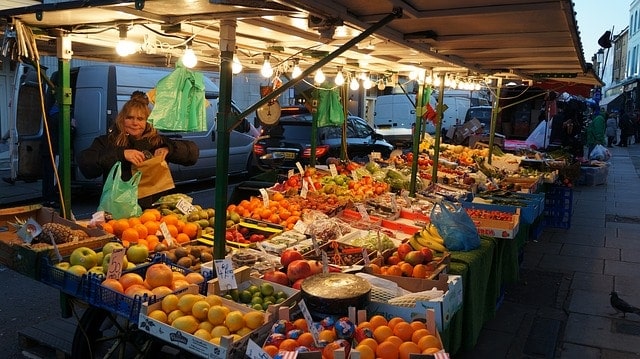The U.S. Food and Drug Administration is working in many ways to help keep people safe while the nation is coping with the coronavirus pandemic (COVID-19). Food accessibility and food safety square measure vitally vital to our well-being, and therefore the FDA is functioning exhausting to sure the foods you, your family, and your pets eat are safe and available.
The Grapes, pomegranates, mangoes, bananas, and oranges account for a large portion of fruits exported from the country. At the same time, onions, potatoes, tomatoes, and green chilly are significant contributors to the vegetable export basket.
Officials, however, said exports to the United States and Japan would suffer as they send inspectors before finalizing their orders.“Their inspectors don't seem to be returning because of the travel bans. So, there are no export orders,” the official added.
The industry expects mango exports to be impacted the most as the UAE is also not placing orders. The US, UAE, UK, Oman, and Qatar are the largest importers of Indian mangoes. India exported mangoes value $60.26 million in the year 2019.
India’s export of fruit and vegetables declined seven.22% on-year within the April-February amount to $2.06 billion.
The European Union has mitigated rules for the import of fresh fruit and vegetables from the Asian country. It has done away with the necessity of a physical certificate to ensure food safety and animal and plant health standards.
Now, online certification will be enough. The EU has strict phytosanitary requirements to prevent the entry and spread of organisms harmful to plants and plant products.
This means specified plants or plant products, including fruit and vegetables and wood products, must be accompanied by a plant health certificate issued by the relevant authorities of the exporting country.
Here area unit 3 things to understand regarding food convenience and safety because the nation copes with the pandemic
Q 1: Is the U.S. food supply safe?
Currently, there is no evidence of food or food packaging being associated with the transmission of the pandemic coronavirus. It’s essential to recognize that unlike foodborne gastrointestinal (GI, or stomach-related) viruses that often make people ill through contaminated food, pandemic coronavirus is a virus that causes respiratory (breathing-related) illness.
The virus can be thought to spread mainly from person-to-person. This includes between people that are in shut contact with each other (within concerning six feet), and through metabolism, droplets created once associate infected person coughs or sneezes.
It may be possible that a person can get pandemic COVID-19 by touching a surface or object that has the virus on it and then touching their mouth, nose, or possibly their eyes, but we don’t think this is the primary way the virus spreads at this time.
Regardless, it’s always critical to follow the four crucial steps of food safety (clean, separate, cook, and chill) to prevent foodborne illness. It’s conjointly necessary to scrub your hands often, as well as right before getting ready and ingestion food and when getting prepared pet food.
Q 2: Are there any food shortages?
Many shoppers report about their neighborhood foodstuff and seeing shelves innocent of bound things. There are currently no nationwide shortages of food for people or pets, although in some cases, you may find that certain foods at your grocery store are temporarily out of stock.
This is mostly because customers are buying more than usual, and not because there is less food. For this reason, we want to remind you that there is no need to buy several months’ worth of food. The retail food industry suggests that we purchase enough food for a week or two at a time, and manufacturers and stores are working hard every day to restock what we all need.
The FDA is working with the White House, the U.S. Departments of Agriculture (USDA), the Department of Homeland Security, and state and international regulatory partners to stay abreast of any impact on food access American people.
Q 3: What measures will the government take to ensure that we address foodborne illness outbreaks during the COVID-19 pandemic?
Concerning foodborne pathogens (e.g., Salmonella, E. coli O157: H7, or Hepatitis A), the Centers for Disease Control and Prevention, the FDA, and the USDA Food Safety and Inspection Service continue to work with state and local partners to investigate foodborne illnesses and outbreaks.
More specifically, the CDC continues to lead and coordinate investigations of multistate foodborne events, consult with states as needed on certain occasions within a single country, and work closely with FDA and others to trace contaminated foods to their sources controlled.
The FDA manages outbreak responses and activities related to incidents involving multiple illnesses linked to FDA-regulated human foods and other products. (These include dietary supplements and cosmetic products.) During this pandemic, the FDA will continue to prepare for, coordinate, and carry out response activities related to incidents of foodborne illness.
The government agency conjointly manages responses to outbreaks related to animal food. Staff continues to stand ready to respond to incidents of foodborne illness in animals.
Three Things You and Your Family Can Do to Help Stay Safe
Buy enough food for a week or two at a time. Avoid close contact with others (within about 6 feet) when shopping.
Get in the habit of washing your hands often, including before and after preparing meals, before eating all meals, and after you come home if you have gone out.
There is a lot of false information online about the pandemic. It would be best if you relied on credible, accurate sources such as the FDA, CDC, and USDA.













No comments:
Post a Comment
If you have any doubts, please let me know.